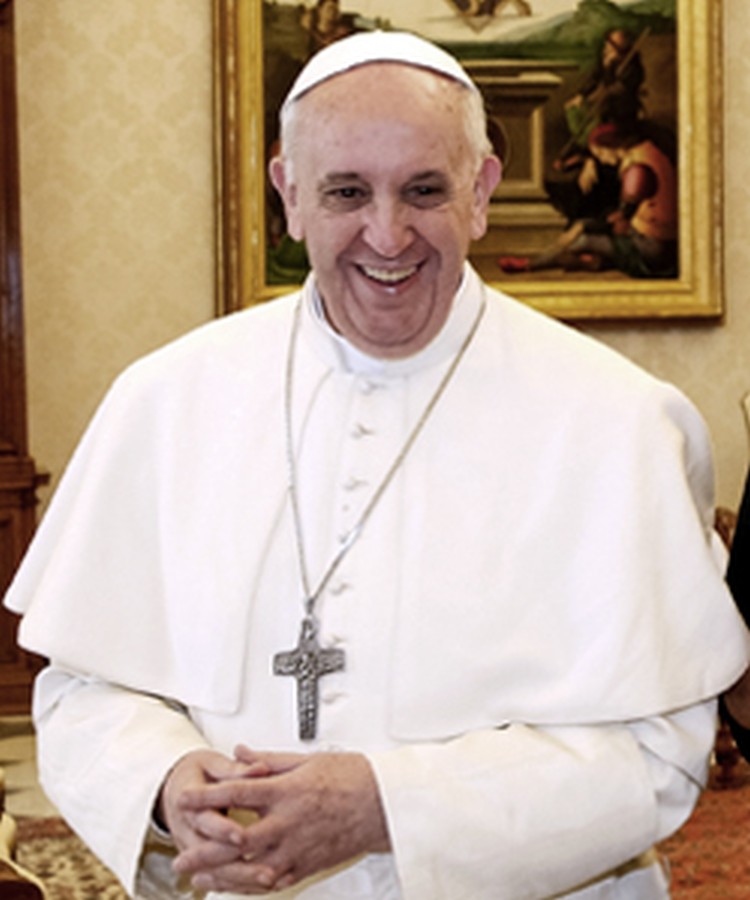By LaRouche Irish Brigade
27 November, 2013
@ LaRouche Irish Brigade
In his first major writing as Pope, released today, Pope Francis is unequivocal:
“Just as the commandment ‘Thou shalt not kill’ sets a clear limit in order to safeguard the value of human life, today we also have to say ‘thou shalt not’ to an economy of exclusion and inequality. Such an economy kills.”
“How can it be that it is not a news item when an elderly homeless person dies of exposure, but it is news when the stock market loses two points?….
In his Apostolic Exhortation Evangelii Gaudium, Pope Francis calls upon financial experts and political leaders from around the world to bring about a financial reform which defends the common good, and replaces the tyranny of a “survival of the fittest [economy], where the powerful feed upon the powerless,” where the ancient golden calf is worshipped, and where human beings are “considered consumer goods to be used and then discarded.” He admonishes that “it is the responsibility of the State to safeguard and promote the common good of society.”
Wall Street and the City of London will not be pleased, as Pope Francis’s spirited message of “No to the new idolatry of money, “No to a financial system which rules rather than serves,” available in six languages on the Vatican website, cracks through their media control worldwide.
Pope Francis writes:
“The worship of the ancient golden calf (cf. Ex 32:1-25) has returned in a new and ruthless guise in the idolatry of money and the dictatorship of an impersonal economy lacking a truly human purpose….
“This imbalance is the result of ideologies which defend the absolute autonomy of the marketplace and financial speculation. Consequently, they reject the right of states, charged with vigilance for the common good, to exercise any form of control. A new tyranny is thus born, invisible and often virtual, which unilaterally and relentlessly imposes its own laws and rules….
“A financial reform open to such ethical considerations would require a vigorous change of approach on the part of political leaders. I urge them to face this challenge with determination and an eye to the future… Money must serve, not rule!”
Pope Francis specifies that welfare measures, while needed, are not sufficient to end exclusion and inequality which breed violence which no surveillance systems can ultimately control; changes must be structural. “Just as goodness tends to spread, the toleration of evil, which is injustice, tends to expand its baneful influence… an evil embedded in the structures of a society has a constant potential for disintegration and death. It is evil crystallized in unjust social structures, which cannot be the basis of hope for a better future….
“As long as the problems of the poor are not radically resolved by rejecting the absolute autonomy of markets and financial speculation, and by attacking the structural causes of inequality, no solution will be found for the world’s problems, or, for that matter, to any problems. Inequality is the root of social ills.
“The dignity of each human person and the pursuit of the common good are concerns which ought to shape all economic policies….
The Pope’s discussion of economics is a central concept in a writing which is 224 pages long (in English), dedicated to exhorting Catholics at all levels to adopt a missionary outlook premised on mercy as the greatest of virtues. The Pope called on Catholics to break out of complacency with habits, rules, and structures which lead to a “tomb psychology [which] transforms Christians into mummies in a museum,” and instead get their hands dirty in changing a system which sees God “as even dangerous, since he calls human beings to their full realization and to freedom from all forms of enslavement.”

